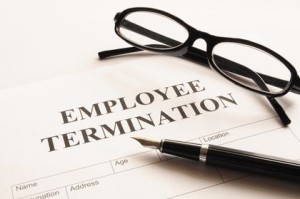 Many people believe that sexual harassment is an unlawful conduct at work place which involves unwelcome sexual advances of a co-worker or a supervisor such as sexual innuendos, offensive touching, unwanted flirting, sexual e-mails and text messages, and alike. Although those are typical examples of a situation which is likely to be classified as sexual harassment, the offensive words or conduct directed at an employee because of his or her gender may create a hostile work environment even if those words or conduct are not sexual in nature. For example, using a word “bitch” repetitively in the presence of both men and women but in reference to women may constitute unlawful gender harassment.
Many people believe that sexual harassment is an unlawful conduct at work place which involves unwelcome sexual advances of a co-worker or a supervisor such as sexual innuendos, offensive touching, unwanted flirting, sexual e-mails and text messages, and alike. Although those are typical examples of a situation which is likely to be classified as sexual harassment, the offensive words or conduct directed at an employee because of his or her gender may create a hostile work environment even if those words or conduct are not sexual in nature. For example, using a word “bitch” repetitively in the presence of both men and women but in reference to women may constitute unlawful gender harassment.
On the other hand, hostile words or conduct based solely on personal animosity is no actionable as sexual harassment in California even if the victim is of the opposite gender. As the court pointed out in once case – “Unfair, overbearing, or annoying treatment of an employee, standing alone, cannot constitute a sex discrimination claim. In other words, a conduct that is based on personal agenda or anger and not on gender is not grounds to claim sexual harassment. For instance, if a boss and a particular employee are not compatible, it would not be sexually discriminatory to harass employee on that basis. In other words, sexual/gender harassment requires showing that the employee was treated a certain way because of his or her gender. For example, where the employee was the only woman on the workforce, her coworkers’ acts of insubordination, dissemination of untrue rumors about her, and aspersions on her competence may contribute to a hostile work environment based on sex.
The employer may assert a defense against liability for sexual harassment claim by showing that the employer exercised reasonable care to prevent and correct promptly any harassing behavior, and that the employee unreasonably failed to take advantage of any preventative or corrective opportunities provided by the employer to avoid harm otherwise. This corrective opportunities commonly include a section in the employee handbook explaining the procedures of complaining about harassment and the employer’s express commitment to address those complaints as soon as possible.





